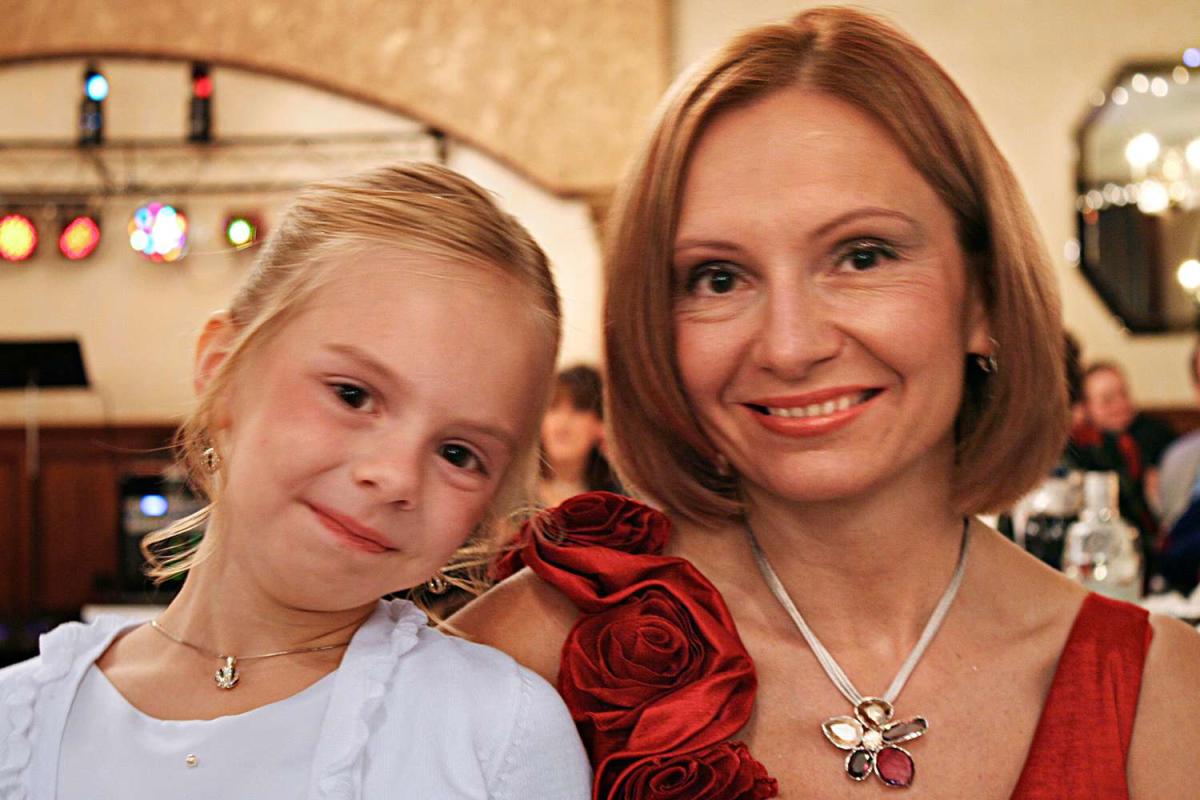Maya Kowalski Case: Johns Hopkins & The Fight For Justice - Latest
Can a familys desperate fight for their childs health lead to a tragedy of epic proportions, exposing systemic failures within the very institutions designed to protect them? The heartbreaking saga of Maya Kowalski and her family, detailed in the Netflix documentary "Take Care of Maya," serves as a stark reminder of the vulnerability of families navigating the complexities of the child welfare system and the medical industry.
The film unveils a disturbing narrative of medical misdiagnosis, allegations of medical child abuse, and the devastating consequences that can arise when the lines of trust between families, hospitals, and legal authorities are irreparably broken. This story, unfolding primarily in the shadow of Johns Hopkins All Children's Hospital in St. Petersburg, Florida, has captured the attention of the world, sparking debates on medical ethics, parental rights, and the responsibilities of healthcare providers. The core of the story revolves around Maya Kowalski, a young girl diagnosed with Complex Regional Pain Syndrome (CRPS), a debilitating neurological condition, and her parents' battle to secure appropriate medical care for her.
To fully understand the intricacies of this case, it is important to delve into the key players, timeline of events, and legal battles that have shaped this modern-day tragedy.
| Attribute | Details |
|---|---|
| Name | Maya Kowalski |
| Age (as of 2024) | 17 years old (Born circa 2007) |
| Medical Condition | Complex Regional Pain Syndrome (CRPS) |
| Parents | Beata Kowalski (Deceased), Jack Kowalski |
| Key Events | Admitted to Johns Hopkins All Children's Hospital (October 2016); Mother accused of medical child abuse; Mother's suicide (2017); Civil lawsuit against the hospital; Jury verdict (2023). |
| Legal Actions | Won a civil suit against Johns Hopkins All Childrens Hospital. Awarded over $200 million in damages. |
| Current Status | Recovering from the ordeal and living with her father, Jack Kowalski. The details of her daily routine are not fully known due to the family's privacy needs. |
| Notable Media | Featured in the Netflix documentary "Take Care of Maya" (2023). |
| Reference Website | Netflix - Take Care of Maya |
The saga began in 2015 when Maya, then a young girl, started experiencing symptoms of a mysterious and debilitating illness. Her parents, Beata and Jack Kowalski, sought help, leading them to the Johns Hopkins All Children's Hospital in St. Petersburg, Florida, in October 2016. The Kowalskis were adamant that Maya suffered from CRPS, a condition that was, at that time, comparatively rare and not well-understood by the hospital staff. Its important to understand that CRPS often involves severe, chronic pain, and can significantly impact a patient's quality of life.
The situation rapidly deteriorated. The hospital staff, unfamiliar with CRPS, began to question Maya's treatment plan and the parents' actions. This led to the hospital accusing Beata Kowalski of Munchausen syndrome by proxy, a psychological disorder where a caregiver fabricates or induces illness in a person under their care, typically a child. The hospital's concerns triggered a series of events that separated Maya from her parents, putting her in the care of the state. The consequences of this division would be both immediate and devastating.
According to reports, Beata Kowalski, was a nurse. She had aggressively pursued ketamine treatments to alleviate her daughter's pain. It was this aggressive approach that led to the allegations against her. Furthermore, Beata was prohibited from seeing her daughter, and she tragically took her own life in 2017, just three months after a judge had sheltered Maya at the hospital. This was after doctors reported Beata for suspected medical child abuse.
- Andraya Carter Espn Analyst Bio Wife Career More
- Moistcr1tikal Penguinz0 Tiana Tracy Split What You Need To Know
The legal repercussions of these events culminated in a high-profile civil suit filed in 2018, where Maya, along with her father Jack, and the Kowalski family alleged false imprisonment, medical negligence, battery, fraud, and the intentional infliction of emotional distress against Johns Hopkins All Children's Hospital. The lawsuit sought over $200 million in damages. It was a monumental legal battle that sought to expose what the family described as the hospital's overreach and its detrimental impact on their family. The jury listened as a doctor detailed the case, which had already led to great anguish and irreparable loss.
A pivotal moment in the legal proceedings occurred on a Thursday in Florida. A jury delivered substantial money justice to the surviving family members, after a long, grueling trial. Maya Kowalski sobbed heavily as the verdict was read, finding Johns Hopkins All Children's Hospital liable for several of the charges. The jury awarded the Kowalski family a staggering amount exceeding $200 million in damages, an unprecedented sum in such a medical malpractice case. Specifically, the jury awarded Maya Kowalski with $15 million for false imprisonment. The jury awarded Jack Kowalski $5 million on that claim, which was later remitted to $2 million by the judge. This verdict was a significant victory for the Kowalski family, validating their claims of mistreatment and the profound suffering they had endured.
However, the legal journey did not end there. While Judge Hunter Carroll decreased the judgment for Maya Kowalski and her family from nearly $47.5 million, he denied Johns Hopkins All Children's Hospital's motion for a retrial. The St. Petersburg hospital filed an initial appeal, arguing that the damages were excessive, and also citing that testimony by Maya emotionally inflamed the jury. The appeal is seeking a new trial as to these specific damages.
Adding to the complexity of the case, in October 2016, Maya was admitted to Johns Hopkins All Children's Hospital. The Kowalski family has stated that Maya didnt receive CRPS treatment while in the hospital. This treatment, according to the parents, included ketamine coma treatments, an unconventional but reportedly effective approach that had improved Maya's condition when administered previously in Mexico. The JHAC pain management team, unfamiliar with CRPS, questioned Mayas treatment plan and recommended that she participate in a physical therapy and psychology program for children with chronic pain. This difference in medical philosophy and treatment approach was a significant point of contention between the hospital and the family.
The emotional toll on the Kowalski family was immense. The separation of Maya from her parents and the accusations against Beata led to a chain of devastating events. Beata Kowalski took her own life in 2017, leaving the family to grapple with grief, legal battles, and the complexities of the child welfare system. The jury also awarded Mr. Kowalski $5 million for his loss.
The case has also exposed the flaws in the child welfare system and the medical industry. The documentary "Take Care of Maya," released in June 2023, has brought the story to a global audience, sparking discussions about parental rights, medical ethics, and the responsibility of hospitals to provide adequate care and support to families. The film recounts the confusing and heartbreaking story of the Kowalski family between 2016 and 2017. In the documentary, Mayas mother said she was put in a ketamine coma in Mexico, an unconventional treatment that had improved her state. This treatment, however, was questioned and ultimately led to the tragic sequence of events.
The case also highlighted the need for greater awareness and understanding of rare conditions like CRPS. The film, as well as media coverage, has helped to educate the public about the condition and the challenges faced by those who suffer from it. The film follows the story of Maya Kowalski, a girl with complex regional pain syndrome, and her parents' fight with Johns Hopkins All Children's Hospital. This documentary and the trial that followed revealed the need for systemic changes within hospitals and child welfare agencies. The film also highlighted the crucial importance of medical professionals possessing the necessary expertise to handle complex medical conditions, and to collaborate with families rather than against them.
Maya Kowalski remained in the hospital from October 2016 to January 2017. During this time, the family faced intense scrutiny, and the allegations against Beata continued to escalate. In January 2017, Beata Kowalski was able to see Maya for the first time since she was admitted to the hospital. The court of dependency was in session, but the minor was in worse condition than when she entered. During that time, Maya was unable to receive the treatment that her mother believed was necessary to alleviate her pain.
Adding to the concerns, a hospital administrator shared an email with the jury where they pointed out four areas where deficiencies were. These deficiencies point to systemic issues within the hospital that may have contributed to the tragic events that unfolded. Mayas father, Jack, brought Maya to the JHAC emergency room for abdominal pain and vomiting. This emergency room visit set off a horror chain of events. Maya, Jack and Kyle Kowalski are pursuing a legal battle against Johns Hopkins All Childrens Hospital in Florida. The family's experience underscores the importance of open communication, trust, and collaboration between medical professionals and families, particularly when dealing with rare or complex medical conditions.
The story of Maya Kowalski is a cautionary tale, revealing the potential for devastating consequences when families encounter challenges within the medical and legal systems. The case has raised critical questions about the treatment of patients with chronic pain, the role of child protective services, and the need for healthcare professionals to possess the expertise and empathy necessary to navigate complex medical cases. The case also highlighted the importance of due process and the potential for bias in the assessment of families and individuals.
In the wake of the verdict, the Kowalski family has begun the long process of rebuilding their lives. They are now looking to the future, with their legal victory providing some measure of closure, while also advocating for reforms to protect other families from similar tragedies. They have also secured a $2.5 million settlement with a doctor. Maya, now 17, has been recovering from the ordeal and is receiving the support she needs, and the family hopes to raise awareness about CRPS and prevent similar tragedies from happening to other families.
:max_bytes(150000):strip_icc():focal(749x0:751x2)/Take_Care_Of_Maya_07-50760cba9dad4966833b98790035ed83.jpg)


Detail Author:
- Name : Dr. Dan Reilly
- Username : bspencer
- Email : bins.maximus@swaniawski.org
- Birthdate : 1971-02-21
- Address : 8236 Dave Hills Calebfort, SD 45304-3283
- Phone : (626) 846-6703
- Company : McClure, Adams and Wiza
- Job : Biochemist
- Bio : Doloremque praesentium distinctio maiores est et dolores. Architecto quae eos eaque et vel dolores reiciendis. Dignissimos officia molestiae excepturi et repellat ut aut.
Socials
instagram:
- url : https://instagram.com/anienow
- username : anienow
- bio : Ab quia laboriosam aut. Numquam possimus unde eum minus. Tempore ipsam expedita est.
- followers : 5647
- following : 1764
linkedin:
- url : https://linkedin.com/in/aisha_nienow
- username : aisha_nienow
- bio : Ut quia et sint ut modi.
- followers : 4267
- following : 947